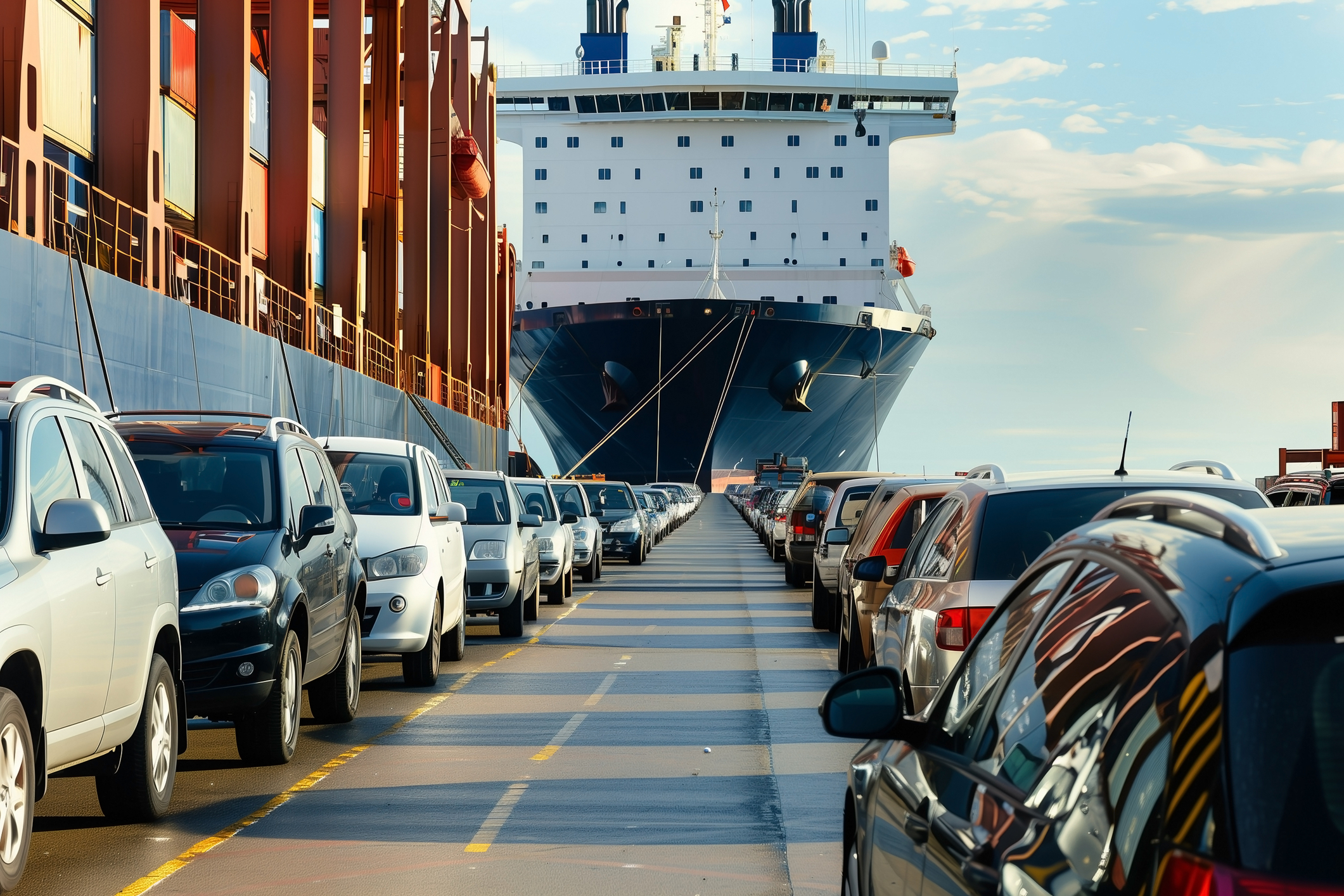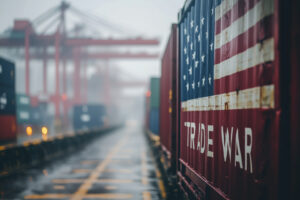A US federal court ruled that the worldwide and retaliatory tariff orders exceed any authority granted to the president Donald Trump by IEEPA to regulate importation by means of tariffs. In response, White House press secretary Karoline Leavitt opened her briefing last night with a lengthy attack on the legal setbacks. She called it “judicial overreach” and called on the nation’s highest court to step in.
The Court of International Trade ruled that the trafficking tariffs fail because they do not deal with the threats set forth in those orders.
A three-judge panel ruled that the International Emergency Economic Powers Act (IEEPA), a 1977 law that Trump cited to justify the tariffs, does not give him the power to impose unlimited tariffs.
The ruling is a big setback for the US president, who has sought to reshape global trade and put America first by using its economic heft to cut deals.
“The court holds for the foregoing reasons that IEEPA does not authorize any of the worldwide, retaliatory, or trafficking tariff orders,” the court said in its judgment Wednesday.
“The worldwide and retaliatory tariff orders exceed any authority granted to the president by IEEPA to regulate importation by means of tariffs. The trafficking tariffs fail because they do not deal with the threats set forth in those orders. This conclusion entitles plaintiffs to judgment as a matter of law; as the court further finds no genuine dispute as to any material fact, summary judgment will enter against the United States. The challenged Tariff Orders will be vacated and their operation permanently enjoined.”
Plaintiffs suggest that Congress’s use of the words “regulate…importation” does not indicate the clear mandate necessary to delegate “such unbounded authority to the president to make such decisions of vast economic and political significance,” as the wide-scale imposition of tariffs.
The court’s judgement could spell an end to Trump’s international trade war and erase most of the trade restrictions Trump has announced since taking office.
The ruling does not state that tariffs themselves are illegal, but any interpretation of IEEPA that delegates unlimited tariff authority is unconstitutional. “Regardless of whether the court views the president’s actions through the nondelegation doctrine, through the major questions doctrine, or simply with separation of powers in mind, any interpretation of IEEPA that delegates unlimited tariff authority is unconstitutional,” the court wrote in its judgement.
It’s the latest legal rejection for Trump on a centerpiece of his policy agenda. But the Trump administration has already filed an emergency motion for a stay pending appeal, leaving the situation uncertain for consumers and companies and potentially prolonging the battle over whether Trump’s import duties will stand and possibly reshape the global economy.
The three-judge panel wrote in their opinion: “The question in the two cases before the court is whether the International Emergency Economic Powers Act of 1977 (IEEPA) delegates these powers to the president in the form of authority to impose unlimited tariffs on goods from nearly every country in the world.
“Plaintiffs and some Amici argue that the government’s interpretation transforms IEEPA into an impermissible delegation of power because “[t]he President’s assertion of authority here has no meaningful limiting standards, essentially enabling him to impose any tariff rate he wants on any country at any time, for virtually any reason.”
White House press secretary Karoline Leavitt insisted that “for the sake of our Constitution and our country” the U.S. Supreme Court must step in.
“These judges are threatening to undermine the credibility of the United States on the world stage,” Leavitt said. “The administration has already filed an emergency motion for a stay pending appeal and an immediate administrative stay to strike down this egregious decision. But ultimately, the Supreme Court must put an end to this for the sake of our Constitution and our country.”
“Three judges of the U.S. Court of International Trade disagreed and brazenly abused their judicial power to usurp the authority of President Trump, to stop him from carrying out the mandate that the American people gave him,” she added.
Since taking office on January 20, Donald Trump has declared several national emergencies and imposed various tariffs in response. The president has subsequently issued a number of pauses and modifications to those tariffs.
After multiple rounds of tit-for-tat tariffs, the United States and China agreed to drastically roll back tariffs on each other’s goods for an initial 90-day period, in a major step toward easing a trade war between the two powers that has rattled the global economy.
According to US Secretary of the Treasury Scott K.H. Bessent, the world’s two largest economies reached agreement on a 90-day pause and both sides will reduce tariffs by 115 percentage points.
The US had imposed tariffs of 145 percent on Chinese goods, while Beijing responded with 125 percent.
Ahead of the announcement, the US tariff on most Chinese imports stood at 145%. That will now be reduced to 30% for the next 90 days.
China has reduced its own tariffs on US goods from 125% to 10% for the same period.
Meanwhile, the US President announced recently that he would pause his planned 50% tariffs on the European Union until July 9. Brussels and the United States have been negotiating in a bid to avert a transatlantic trade war, and had agreed to extend the June 1st deadline on the 50% tariff until July.
Trump made the announcement on his Truth Social network, highlighting that he has agreed to extend the deadline to 9 July 2025.
Donald Trump also touted a “breakthrough trade deal” between the U.S. and United Kingdom.
The agreement will open up the British market to American beef, ethanol, and other agricultural products, the White House said. It will also allow British cars and steel better access to U.S. consumers.
Under the still-evolving deal, the reciprocal tariff rate of 10% is in effect. In other words, Trump kept a 10% baseline tariff on British products imported to the United States.
Furthermore, car export tariffs will reduce from 27.5% to 10% – saving hundreds of millions a year for Jaguar Land Rover alone. This will apply to a quota of 100,000 UK cars, almost the total the UK exported last year.
Specifically, the first 100,000 vehicles imported into the U.S. by UK car manufacturers each year are subject to the reciprocal rate of 10% and any additional vehicles each year are subject to 25% rates.
The two sides differed on some key details, pointing to the hastily arranged nature of the agreement.
What Maritime Experts say about the Ruling
The decision of the U.S. Court of International Trade to deem Trump’s sweeping tariffs as unlawful is good news for shippers, but it could signal the beginning of the next era of confusion in global supply chains, according to Oslo’s Xeneta, the ocean and air freight intelligence platform.
Emily Stausbøll, Xeneta senior shipping analyst, said: “The court decision to deem the sweeping tariffs unlawful is clearly positive news for shippers who have faced extraordinary increases in the cost of importing goods into the US, but this should come with a warning that the story is far from over. Even if the appeal fails, Trump will not throw in the towel and he has other levers to pull to achieve the same outcome as the sweeping tariffs.
“We only have to look at the US Government proposal to introduce port fees on China-affiliated ships and the SHIPS for America Act to understand the range of options at Trump’s disposal in the ongoing trade wars.
“When Trump does pull these levers, we could enter a new era of confusion in supply chains because the situation will become more complex for shippers to navigate. They could be hit with a raft of surcharges and levies, whether that is port fees or a new tariff regime imposed on a product-by-product basis.”
“Businesses will react in different ways depending on their supply chain needs and the goods they are shipping. We have already seen a rush to import goods into the US from China following the lowering of tariffs on 14 May, so the decision by the U.S. Court of International Trade will add further fuel to this demand.
“Shippers who utilized bonded warehouses in the US are in the advantageous position of being able to wait for the green light that ‘Liberation Day’ tariffs are no longer in place before immediately releasing those goods.
“The cargo rush following the lowering of US-China tariffs combined with fear and uncertainty in the industry is putting upward pressure on spot rates.”



